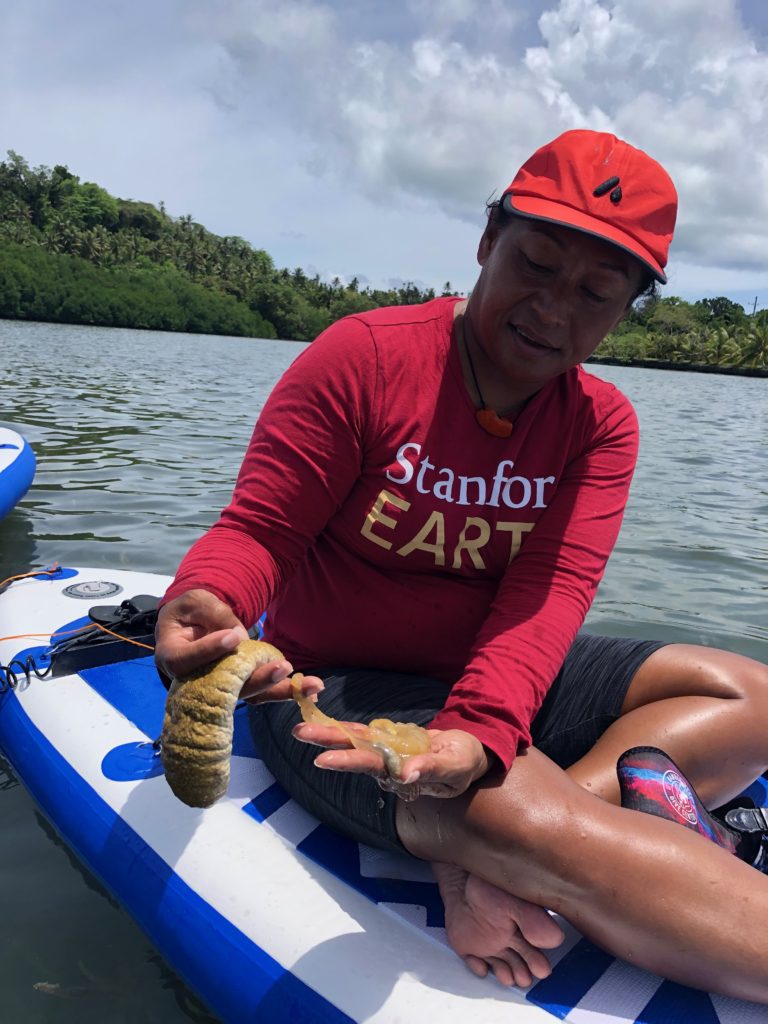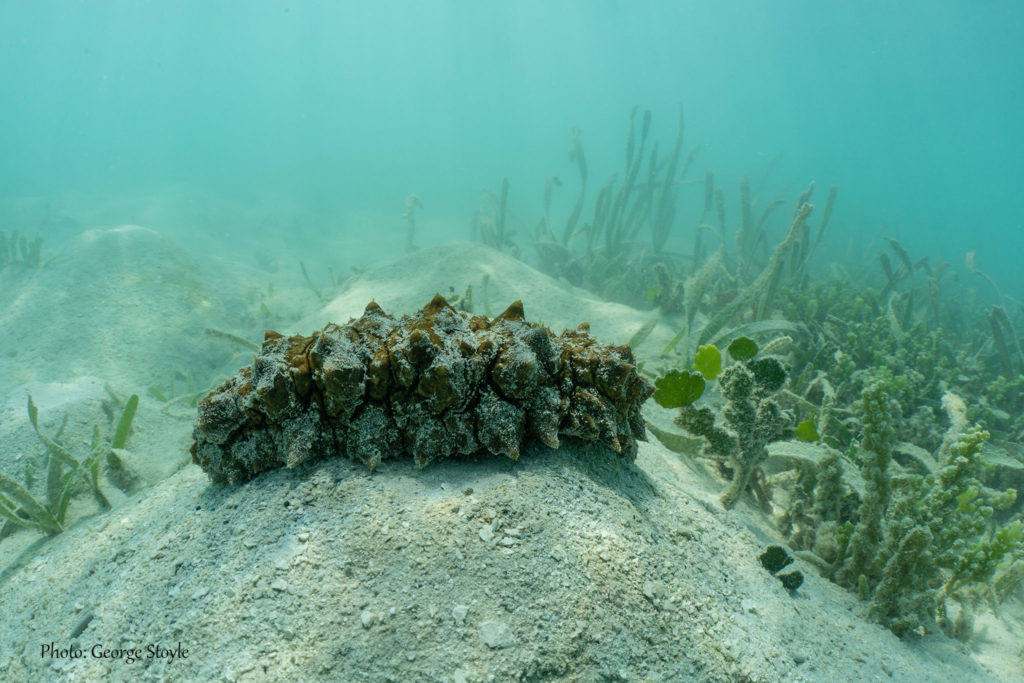
Successful Women’s Fisheries Conference
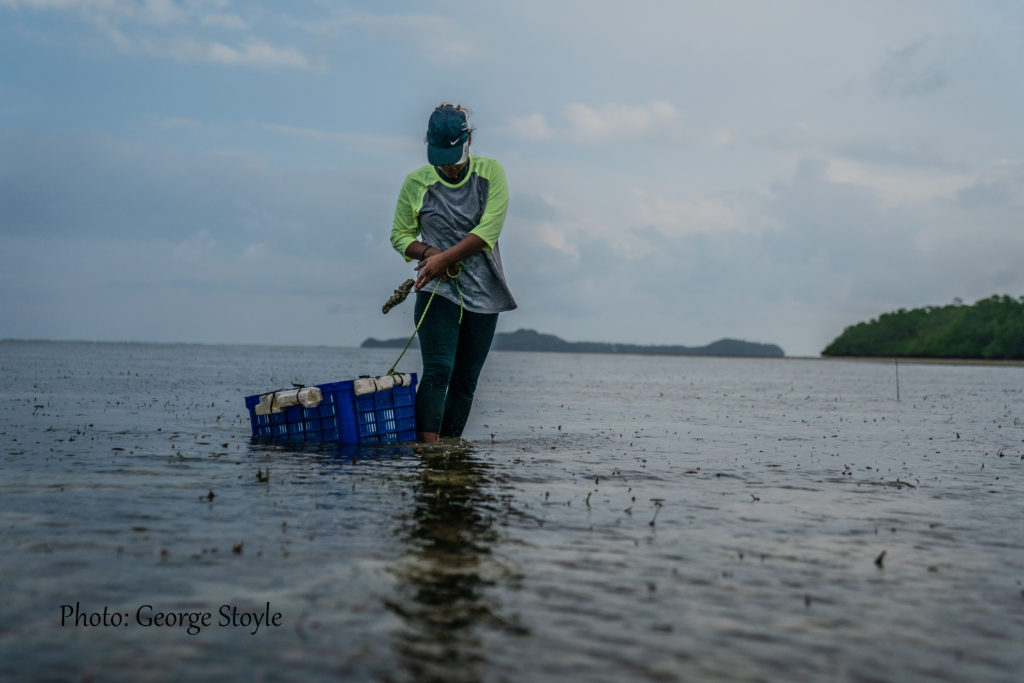
Women’s Fishery Conference
As sea cucumbers are an easily collected coastal resource mainly for women, on Saturday, October 26th the Ebiil Society held a Women’s Fishery Conference in order to introduce multi-state dialogue about the sustainable control of this valuable coastal resource. Joining Ebiil Society Board Members and Staff were women representatives from various state communities which harvest sea cucumbers for local consumption.
Sea cucumbers, which are marine invertebrates of the class Holothuroideaplay, hold an important role in Palauan culture, fishing lore, economy, and food security. Palau is one of the few islands in the Pacific with an active local sea cucumber market; eight species are consumed domestically and select species are considered a traditional delicacy (Pakoa et al., 2014b, 2009). In addition to household consumption, Palau’s subsistence sea cucumber fishery supplies both the local market and an export market: Palauan families living abroad.
Over the years, Palau’s subsistence market has developed into an important semi-commercial fishery supplying both these local and overseas markets. Yet, neither one of these markets is subject to the country’s export laws (Pakoa et al., 2009). Palau also has experienced periods of harvests specifically targeted for commercial export for the dried sea cucumber or beche-de-mer market. Recently in 2011 in only 48 days, fishers landed a total quantity of 1,160 tonnes of raw sea cucumbers and generated over USD 1.3 million in direct income to the people of the eight States of Palau, one of the highest levels of income ever realized from the sale of sea cucumber in the Pacific (Pakoa, K et al, 2014), while rapidly and systematically depleting stocks throughout the nation.
Sea cucumbers are an easily collected coastal resource mainly collected and processed by women and, if managed well, one of the few coastal resources can sustainably contribute to a family’s livelihood at the village level. However, due to their ease of collection, density-dependent reproductive biology, and increasingly high demand originating from Asia, popular and valuable species often are overharvested and depleted, or face poorly regulated boom-bust cycles that have a tendency to minimize potential economic benefits to communities as well as leaving coastal habitats deficient of the important ecological function that sea cucumbers provide (Barr, R et al. 2016).
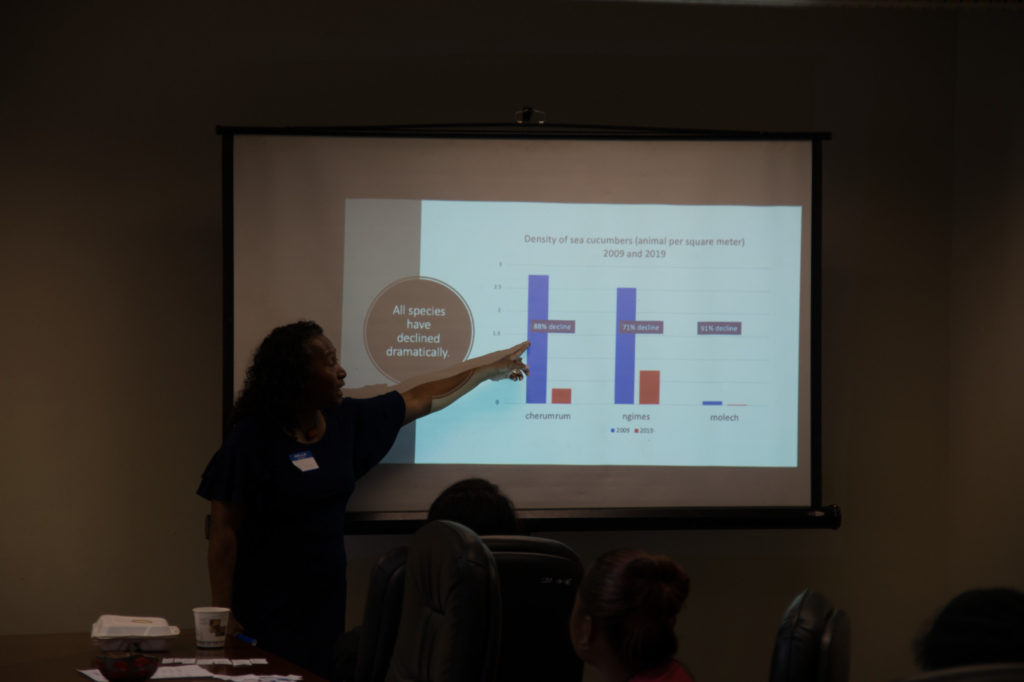
Sea cucumbers are widely considered to be depleted or in general decline throughout Palau, contributing to losses in potential income to families, reduction in food security, and the broad ecological services that these species provide. To address these issues in a well-timed, ecosystem-based and community-driven approach, this project will: 1) work with women fishers, researchers and managers to better understand local conditions tied to the sustainable management of this valuable and particularly vulnerable marine species, 2) develop and test practical, locally appropriate solutions that may enhance the long-term ecological and economic benefits of the species, as well as 3) strengthen the role and engagement of fisherwomen in knowledge development, management decision making and policy development process related to this important fishery.
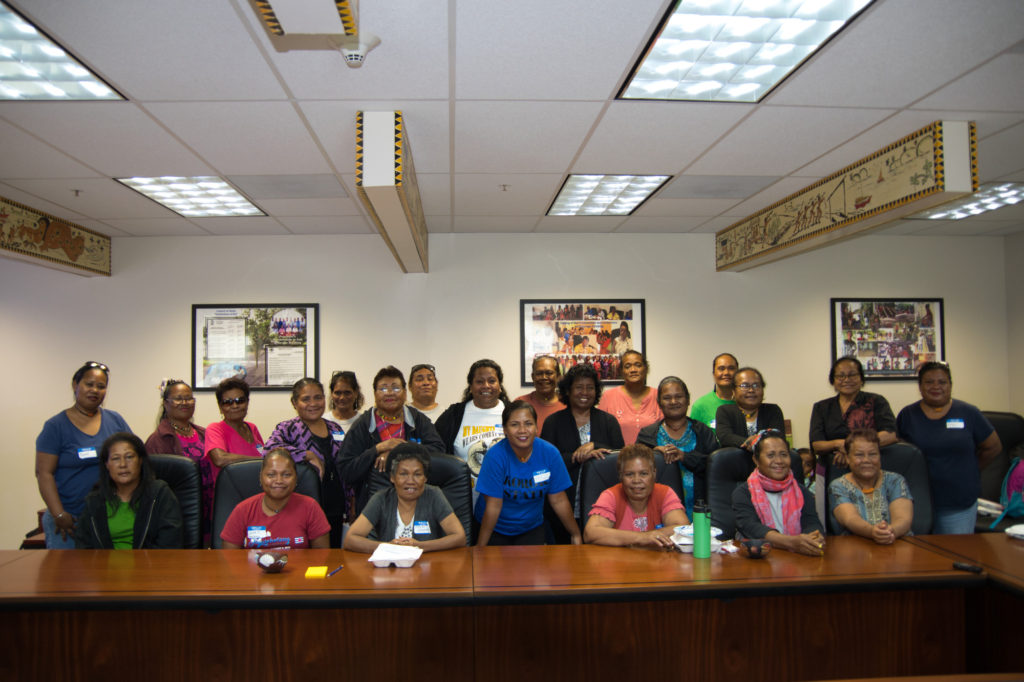
Above: Participants of October 26th Conference
Below: Ann Singeo, Executive Director of Ebiil Society demonstrates molech, a sea cucumber species traditionally harvested in Ollei, Ngarchelong.
